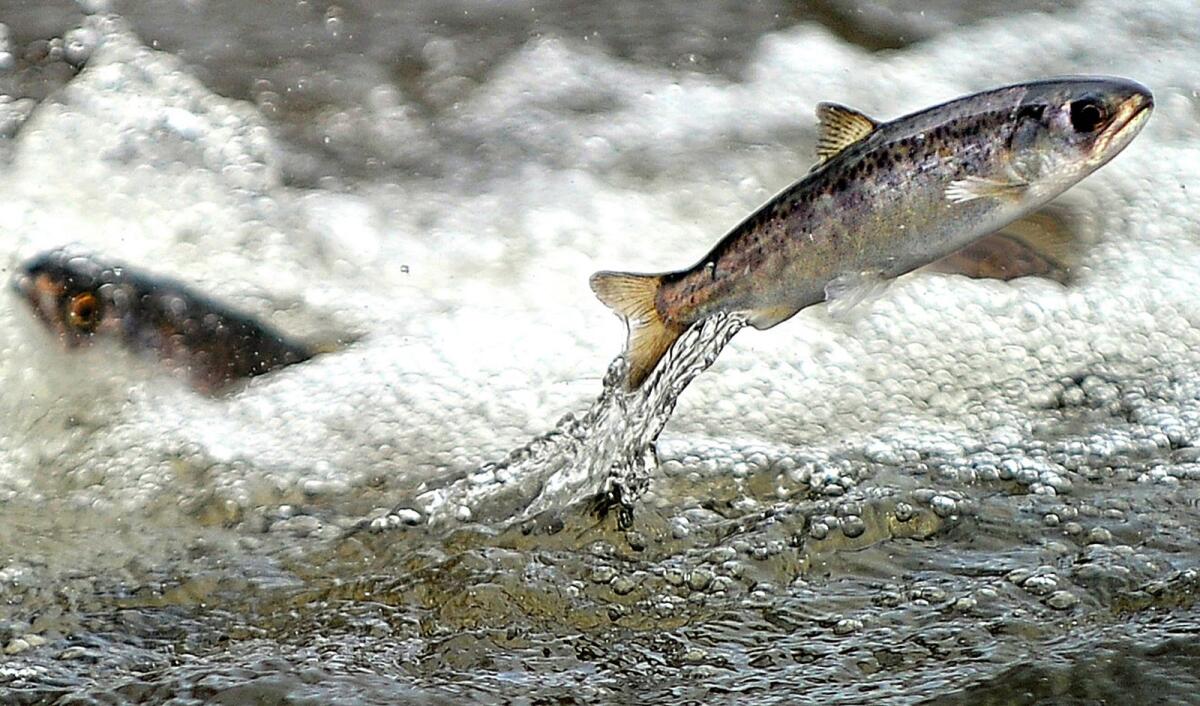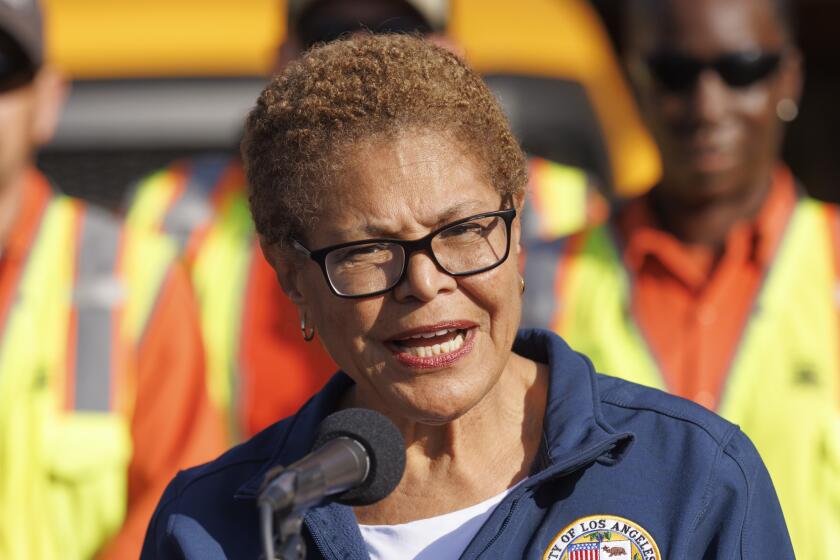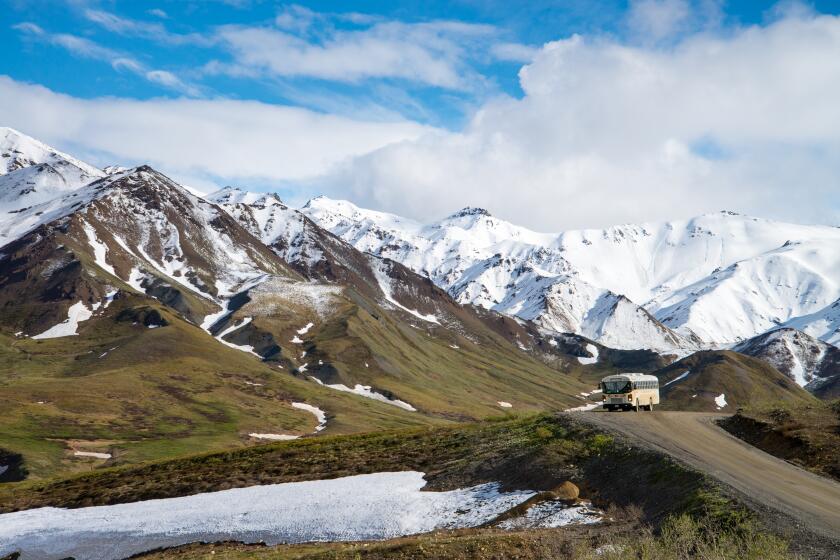Salmon study may foil Trump’s plan to boost water deliveries to Central Valley farms

- Share via
Federal biologists worked frantically this year to meet a deadline to assess the environmental impacts of Trump administration plans to send more water to Central Valley farmers.
But the biologists’ conclusion — that increased deliveries would harm endangered Chinook salmon and other imperiled fish — would foil those plans. Two days after it was submitted, a regional federal official assembled a new review team to improve the documents.
The move is the latest salvo in the decades-long battle over the environmental harm caused by the mammoth government operations that export water supplies from the Sacramento-San Joaquin Delta, the center of California’s vast water system.
During the Obama administration, federal fishery agencies adopted tougher export limits after finding that delta pumping was pushing delta smelt, Chinook salmon and other native fish to the edge of extinction.
Westlands Water District, the state’s largest irrigation district, and other delta water users have fought bitterly against the Endangered Species Act restrictions, arguing they pay too much attention to fresh water flows and too little to other environmental stressors that have contributed to the delta’s fish crisis.
In tweets last year, President Trump echoed farmers’ protests and directed federal agencies in October to suspend or revise regulations that hamper water deliveries.
“You’ll have a lot of water. I hope you’ll enjoy the water you’ll have,” Trump said as a group of GOP congressmen from the Central Valley watched him sign the memo after a fundraising lunch in Arizona.
Leading the rollback efforts are Interior Sec. David Bernhardt, who before joining the Trump administration was a partner in Brownstein Hyatt Farber Schreck, a top grossing law and lobbying firm that sued the Department of Interior four times on behalf of Westlands. Bernhardt lobbied on behalf of Westlands and personally argued an appeals case challenging salmon protections.
Trump’s memo set strict 2019 deadlines for the National Marine Fisheries Service and the U.S. Fish and Wildlife Service to update rules that govern delta water exports in what are called biological opinions.
According to information provided to The Times by Public Employees for Environmental Responsibility, federal sources familiar with the work said the fisheries service met the deadline. On July 1, it completed a biological opinion that was signed by multiple staffers and cleared by service attorneys.
The opinion concluded that the proposed delta pumping would jeopardize the continued existence of endangered winter-run Chinook salmon, threatened spring-run Chinook and threatened Central Valley steelhead, as well as endangered Southern Resident killer whales that dine on salmon.
Not only would a so-called jeopardy opinion make it difficult to shed pumping limits imposed under Obama-era opinions, it might impose new ones.
Paul Souza, the regional fish and wildlife director who is coordinating work on the salmon opinion and a separate one for delta smelt, said “it’s premature for us to talk about conclusions.”
He requested a two-month extension to the deadline and assembled a new review team because “We needed more time to work through different issues,” he said. “We had a lot of new information coming into the mix,” he added, citing comments from water users and the state as well as discussions with the Bureau of Reclamation about steps to mitigate impacts of its delta export operations.
He acknowledged that “we have been asked to make sure water supply is available for important farmland in California and communities.” However, he added that “conservation strategies necessary to support imperiled fish and other species are going to be a center piece of this work.”
Jeff Ruch, Pacific director of PEER, condemned Souza’s moves.
“His professional staff turns in this work and he summarily rejects it, convenes a new team … and the clear message is that the [reclamation bureau’s] plans will not be at all impeded,” said Ruch, whose nonprofit group works with current and former government employees to bring information “into the light of day.”
Souza’s mandate, Ruch contended, “is to make sure [the fisheries service] did not issue a jeopardy opinion no matter what the impact was.”
Federal agencies have been down this road before.
In 2004, under the George W. Bush administration, federal biologists concluded in draft documents leaked to the media that delta water operations would jeopardize populations of winter-run Chinook and Central Valley steelhead. A few months later, a final opinion reversed that finding, opening the door to increased exports.
The Commerce Department inspector general later faulted the fisheries service for not following agency guidelines designed to ensure “the quality of the biological opinion.” And a series of lawsuits followed, ultimately resulting in new opinions for delta smelt and salmon during the Obama administration that tightened pumping limits.
Whatever the outcome of this round of endangered species reviews, they are bound to be challenged in court. If restrictions aren’t relaxed, water users will sue. If they are lifted, environmental and salmon fishing groups will file suit.
“Salmon in California are a major natural resource enjoyed by many Californians and relied on by many to make a living,” said John McManus, president of the Golden Gate Salmon Assn. “The water in the Central Valley is needed to keep our salmon runs alive.”







